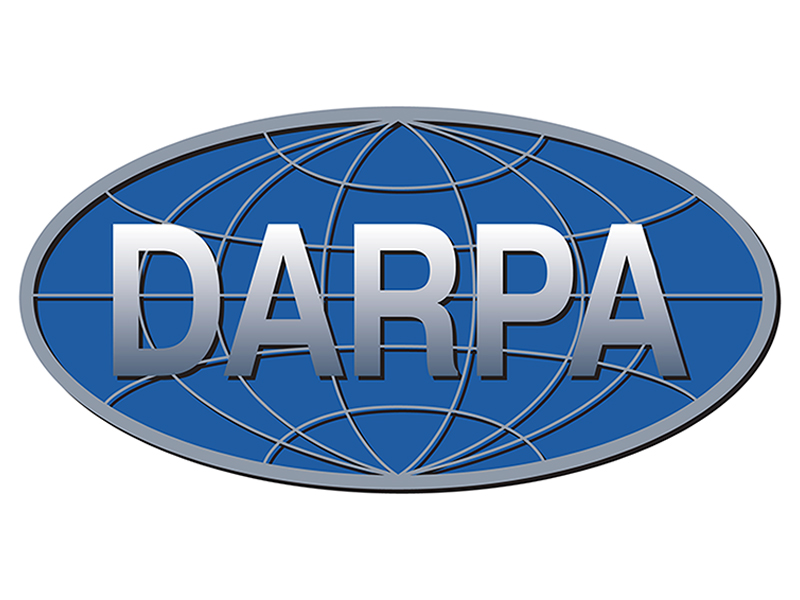DARPA Offers $2 Million for Self-Healing Software
DARPA is offering $2 million to enterprising programmers who can devise self-repairing software.

"Computer, heal thyself." At present, when a system gets infected, the best a user can do is run a program to repair it.
The Pentagon's Defense Advanced Research Projects Agency (DARPA) isn't satisfied with this solution, and is offering $2 million to enterprising programmers who can devise self-repairing software.
DARPA has announced the Cyber Grand Challenge (CGC), which sounds like an eSports video-game tournament for security experts. Teams of programmers (or lone wolves) can register at DARPA's website to start the process.
After registration, teams must submit a technical paper outlining their ideas to DARPA by March 5, 2015. A real-time programming tournament will ensue sometime in 2016. Think of the event as a hackathon sponsored by the U.S. government.
MORE: 10 Most Successful Video-Game Kickstarter Campaigns
As for the CGC itself, DARPA wants to develop computer systems that can repair software without having to wait for interested parties to develop patches. The benefits of self-repairing software are hard to overstate, especially for government institutions that deal with sensitive information regarding weapons and military technology.
"Today, our time to patch a newly discovered security flaw is measured in days," Mike Walker, DARPA program manager, said in a statement. "Through automatic recognition and remediation of software flaws, the term for a new cyber attack may change from zero-day to zero-second."
Get instant access to breaking news, the hottest reviews, great deals and helpful tips.
What's notably absent from DARPA's invitation is any indication of how self-repairing software might work. DARPA explains that experts in this field often compete in similar real-time programming tournaments, but does not specify how a computer might learn to isolate and obliterate threats before they infect it.
The rewards are fairly generous as well: The best submission will receive $2 million, with $1 million and $750,000 for second and third place. A novel self-repair system could potentially earn even more money from a private company, but DARPA will also offer contracts to winners willing to work with the agency further.
If you've got the skills to compete, check out the official CGC site for more details about how your security system could earn you a cool two mil. Do exercise some caution, though: If your program succeeds, you could very well be taking the first exploratory steps toward the "Terminator" series' self-aware computer network Skynet.
Follow Marshall Honorof @marshallhonorofand on Google+. Follow us @tomsguide, on Facebook and on Google+.

Marshall Honorof was a senior editor for Tom's Guide, overseeing the site's coverage of gaming hardware and software. He comes from a science writing background, having studied paleomammalogy, biological anthropology, and the history of science and technology. After hours, you can find him practicing taekwondo or doing deep dives on classic sci-fi.
-
Yuka If you can actually create software like that, then USD$2M is really pocket change.Reply
It's basically asking for an AI to scan the source code and simulate input-output for it. It's a REALLY complex problem to solve, so 2 million is nothing.
Cheers! -
husker The U.S. government spent hundreds of millions on the Obamacare website that doesn't even work. Yet a measly 2 million prize for basically creating software that belongs in a sci-fi movie.Reply -
squirrelboy boss: "bob, we need self-healing software."Reply
bob: "but developing that will cost tens of millions, even billions!"
boss: "no it wont. it will cost us $3.750.000."
bob: "how?"
boss: "we will put up a challenge, make hundreds of developers give us their ideas, and give the best three some pocket change."
bob: "...they wont have a clue."
Just some thoughts ^.^ -
"S-M-R-T, that spells 'smart'". Do these people think we are retarded? To provide the government, and more specifically, the military with any true free-market (that mean no coercion) software, is truely only for the most state-brainwashed evil geniuses.Reply
This is not just about the actual cost of development, this is purely directing resources to an organization that is coersion-based (nothing to do with "defense") and is only looking out for it's own self. You would have to delusional to think that you would be contributing to the actual defense of the nation; plus you could make a lot more money with this software on the open/free-market then just whore it out to DARPA. -
ikaz Actually Darpa does this alot and it is smart to do, normally a lot of student use these challenges at there Thesis at engineering schools. From just a finacial standpoint I wish the goverment did more things like this why spend millions and millions of Tax payer money where there are people out there will can and are willing to do it for almost free. As other have pointed out it would be much better to go private with such an application. However if your that smart but have no business sense than this is a horrible way to go. If you win you will make a name for your self and maybe enough money to start up a new busniess or on going contract with the government at the end of the day it still up to you.Reply -
Eisbrecher34 I agree that it may just be pocket change for DARPA, but think about it, if you are the one that wins the challenge I guarantee your name is going to shoot to the top of the list for employment opportunities, not to mention that while your program will belong to DARPA, you can probably write another commercial version to shop around to the other tech companies out there, and what better way to sell it than to say that your program was accepted by the most famous black ops arm of the government...Reply -
mman74 And that would be the dawn of Skynet! Honestly when software has the ability to self-heal then there is no reason they won't self-upgrade. Afterwards would be a short hop to sentience, and soon it will see mankind as a threat, and we all know how that story ends.Reply -
oj88 Novel idea, even Microsoft, Google, and Apple cannot do it. You need to rewrite the OS to support such self-healing process. An easy solution is to have a clean cloned drive, which can replace the damaged drive automatically on next reboot, then duplicate itself back.Reply -
The_Trutherizer I don't really get it. As long as back doors are built into security protocols for surveillance purposes how will you ever have anything networked that is totally secure?Reply
And as far as I know CPU manufacturers have been investing heavily into the tech needed to have on-die radio transceivers on chips. But of course DARPA can afford to requisition chips to their specification.
